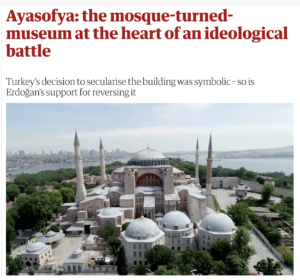
Without wishing to sound like Grandpa Simpson, I just about remember ‘Peking’ and ‘Bombay’ before they became Beijing and Mumbai.
This retreat from exonyms, the habit of giving something a different name to how the people there themselves call it, was an earlier attempt to decolonise our language, and so was originally only applied to non-European lands, victims of empire; you’d look rather silly if you talked of Beograd or München, but you’d look parochial or unsavoury if you still used Bombay.
Likewise, Burma has been phased out in favour of Myanmar, even though both have the same etymological origins; for various reasons the regime prefers the latter, but Burma is simply an English rendition of the Portuguese word for the country.
Again, we’re following suit out of politeness and guilt, but English speakers have lots of strange names for countries; our word for Hellas comes from the ancient Roman name Graikoi. Likewise the English name for the Deutsch is a Latin term for the people we used to call ‘the Saxons overseas’, while confusingly we applied their own name to their neighbours, the Netherlanders. We call Suomi after just one tribe found in that region.
Yet the retreat from exonyms has finally crossed the Bosporus into Europe, with The Guardian today running a piece about something called the ‘Ayasofya’.
This is the Erdogan-favoured term for what English speakers have long called the Hagia Sophia, yet if the whole point of altering the language was to decolonise it, then surely applying an Ottoman term to a former Greek Orthodox cathedral makes little sense. The Turks, after all, had a pretty big empire.
Unless the whole thing was about using language to denote status, of course, as so much in politics is really.
Pronouncing things as the locals do is obviously high-status, suggesting you travel a lot, and are sensitive to foreign cultures. In other words, you aren’t a gammon. The degree to which Radio 4 over-pronounces foreign words is sometimes actually irritating; the name of the former French president Nicolas Sarkozy being especially painful to hear.
Brits abroad embarrassed about our poor language skills and well-deserved national reputation as vomiting morons are often over-cautious about it. When I went to Sicily a couple of years ago I found myself saying ‘Sira-cusa’, even though this ancient and great city has long been so renowned among English speakers that it’s reasonable for us to use our own exonym. (As with the city in New York, which was named after the great polis).
But even here the times are changing, I notice, and the Guardian has begun to use Siracusa rather than Syracuse, although it’s not consistent as yet. Siracusa sounds more high-status, and so does ‘Ayasofya’, but it makes no logical sense from an anti-colonialist perspective. If you really wanted to decolonise the language, you’d surely stop using the term ‘Istanbul’, itself a legacy of Ottoman imperialism and adopted by the Turkish Republic, and call the city by its former name?










Join the discussion
Join like minded readers that support our journalism by becoming a paid subscriber
To join the discussion in the comments, become a paid subscriber.
Join like minded readers that support our journalism, read unlimited articles and enjoy other subscriber-only benefits.
Subscribe